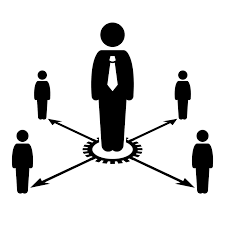Regarding Tranche 2 Compliance: Is It Better to Outsource or Insource?
Introduction
With Tranche 2 compliance requirements now affecting legal, accounting, real estate, trust services, and high-value dealers, businesses are faced with a crucial decision:
👉 Should you build an in-house compliance team, or is outsourcing a smarter move?
Both options come with benefits and challenges, and the right choice depends on your business’s size, resources, and risk exposure. Let’s break it down.

The Case for Insourcing Compliance
Building an internal compliance team means having direct control over AML/CTF processes. This option is typically best suited for:
✅ Large businesses with the budget to hire and train compliance staff.
✅ Organizations with complex operations that require tailored, industry-specific compliance programs.
✅ Companies that prefer long-term cost efficiency rather than ongoing outsourcing fees.
Pros of Insourcing:
🔹 Full Control & Customization – Internal teams can develop compliance strategies aligned with business goals and risk tolerance.
🔹 Faster Internal Communication – Compliance officers work closely with other departments, ensuring seamless coordination.
🔹 Long-Term Cost Savings – Over time, training an in-house team may be more cost-effective than ongoing outsourcing fees.
Cons of Insourcing:
❌ High Initial Investment – Hiring, training, and retaining compliance professionals is costly.
❌ Resource-Intensive – Staying up to date with regulatory changes requires continuous education and monitoring.
❌ Potential Skill Gaps – Businesses risk non-compliance if internal teams lack expertise in evolving AML/CTF laws.
The Case for Outsourcing Compliance
For businesses that lack in-house expertise, outsourcing compliance functions can be a cost-effective and risk-reducing solution. This option is best for:
✅ Small to medium-sized businesses that cannot justify a full-time compliance team.
✅ Companies seeking specialized expertise without the overhead of internal hiring.
✅ Organizations that need rapid compliance implementation without lengthy onboarding.
Pros of Outsourcing:
🔹 Access to Experts – Compliance firms bring specialized knowledge and stay updated on regulatory changes.
🔹 Scalability & Flexibility – Businesses can adjust services based on needs without committing to full-time hires.
🔹 Faster Implementation – External providers have ready-to-go frameworks to help businesses become compliant quickly.
🔹 Lower Upfront Costs – No need to invest in hiring, training, or compliance technology.
Cons of Outsourcing:
❌ Less Direct Control – External providers may not align perfectly with company culture or internal processes.
❌ Ongoing Costs – Outsourcing may become expensive over time, especially for long-term compliance needs.
❌ Potential Data Security Risks – Sharing sensitive compliance data with third parties requires strong security measures.
Which Approach Is Right for Your Business?
The best solution often lies in a hybrid approach—a combination of in-house oversight and outsourced expertise. Here’s how:
✔ Outsource for Immediate Compliance – Engage experts to develop a compliance framework and perform initial risk assessments.
✔ Build Internal Capabilities Over Time – Train key team members to manage ongoing compliance needs in-house.
✔ Use External Audits for Risk Management – Even with an internal team, outsourcing periodic reviews helps ensure full compliance.
At Compli3d, we offer both outsourced compliance solutions and advisory services to help businesses find the right balance. Whether you need full-service compliance management or guidance to build an internal team, we’re here to help.
📩 Contact us today to discuss your compliance strategy.
🚀 Let’s Get Compli3d!

